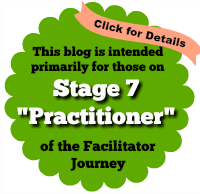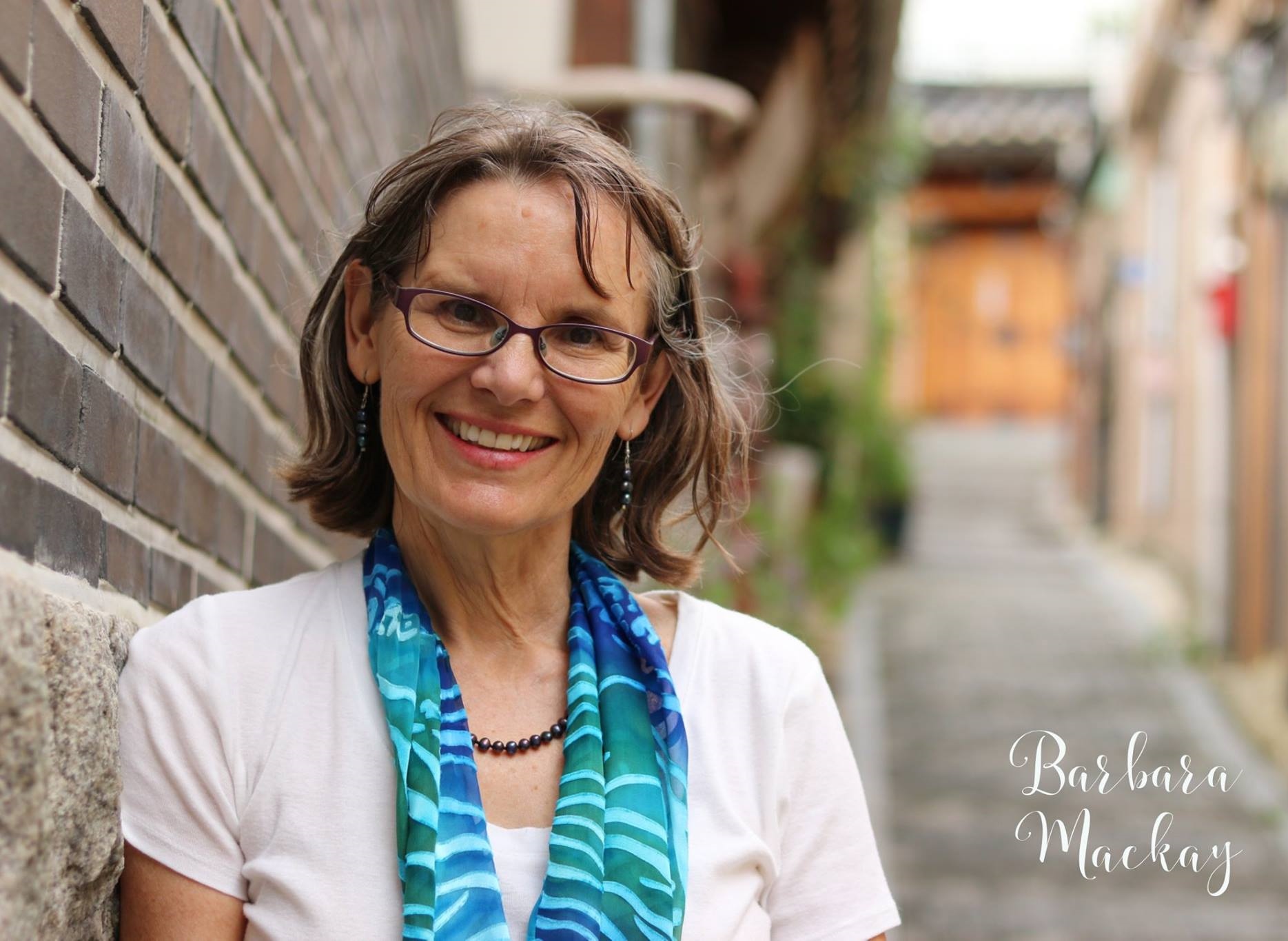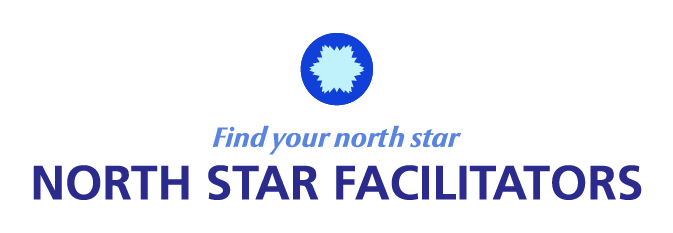Facilitator Endurance: 4 Stages That Win You the Gold

 I’ve been thinking about endurance. The winter Olympics in Pyeongchang, South Korea now, are a very big demonstration of endurance. Athletes go through a four stage process more or less of endurance training. What about facilitators? I’d like to talk about the why and what of the four stage process as it relates to our own work as facilitators.
I’ve been thinking about endurance. The winter Olympics in Pyeongchang, South Korea now, are a very big demonstration of endurance. Athletes go through a four stage process more or less of endurance training. What about facilitators? I’d like to talk about the why and what of the four stage process as it relates to our own work as facilitators.
Why do I say we need endurance as process facilitators?
You only need to be with a difficult group once, solving a very difficult problem with them, to know that it takes incredible endurance. You hold that space for them, believe in yourself and them, and push yourself and them beyond anything they have ever known.
If you do not have the guts to do that consistently, you need to build more endurance. You do this because you want to have more impact.
Start your endurance training here!

Why Build Endurance?
 Think about that question for yourself and see if you know the answer now.
Think about that question for yourself and see if you know the answer now.
I can clearly remember every agonizing detail of some days with groups that needed every ounce of strength, agility, good thinking and stamina I had. They were definitely moments when I wanted to give up… and definitely moments when I could see the group had given up. These were the moments when I needed to dig deep and find the endurance that I had been building for a long time. I needed to move myself through something intensely demanding, but also move an entire group through it. So in some ways it requires even more skill than an Olympic athlete who is just fighting for him or herself. Luckily, I think it doesn’t require quite as much training as for Olympians! I could be wrong??
For me, it’s because I see and feel the pain of the group sometimes that has lasted years. I sense they may be ready to shake off this pain. I know they are capable of doing great things for society and something has held them back. I am their coach. I tap into the potential even though they do not know they have it – and I throw myself into their “story”, feel it and shine a light in the dark places to help them navigate brilliantly through it.
Let me illustrate with a short case study of a client group I worked with a long time ago. And then I’ll help YOU explore the four stages you need to go through.
Case Study
It’s in the early 2000’s. The client group works with people who have alcohol and drug abuse problems. Both the people they serve and staff are working and living on a very low budget. I’m asked to come in to help them work on customer service issues and “maybe management-staff relations”. After hearing their story and attending a staff meeting with over 30 people in it, I ask Management if we could drop the topic of customer service and just work on the staff-management relationships. They agreed.
We ended up doing a ToP journey wall process (see resources below for more on this) and in the course of reflecting on events within their own organization and some discussion, there was one card on the wall that was called the “XYZ incident”. I knew that it might be a code word for trouble so I asked the question, “Can someone say more about this incident?” There was dead silence in the room. It turns out this XYZ incident had been so traumatic for the staff about six years previously, that the entire group was still in deep pain over it. Unfortunately, for legal and conflict avoidance reasons, the management group had never been able to openly address it. I non-verbally looked at the management group when the incident came up and with a raise of my eyebrows I was asking them “Can I go here?” They imperceptibly nodded their heads “yes’.
It took everything in me to stay with the group but many hours later, we were able to determine that this incident had deeply affected not just a few people, but the entire staff. They were able to vent their anger and shed tears of shame and humiliation. It was the first time in six years they had ever openly talked about it together – staff and management. It took a lot of courage for them to stay with my coaxing questions. It took me being extremely calm, open, and encouraging and able to “stand in the fire” as Larry Dressler would say. I systematically unpacked every statement they shared and used Dr Rosenberg’s Non Violent Communication (NVC) method to do so.
If I stayed with my agenda of having them think about what kind of staff management relationships they wanted, it would have been a disservice to them. It took us six hours to move through that conversation. It was not anywhere close to what I had intended to do. When I returned a few days later to pick up something I had left behind, literally four people rushed up to the front desk when they heard my voice and thanked me. They said they had felt this pain for over six years and now, suddenly the workplace felt like a loving, caring place. Management had demonstrated they cared and “were with” the staff on this. Nothing more needed to be done.
The Four Stages
So what are four stages of endurance building you need as a process facilitator? I am extrapolating a lot from my own life experience. I had been a gymnastics hopeful for the Olympics in my youth, but I didn’t have the emotional endurance, coaching support, or money to fund me for such a massive effort. And I have been in training as a facilitator for about 25 years. Those experiences mirror what I think are the four stages Olympic athletes may go through. I have used photos of these magnificent huge rocks at Crescent Beach, Oregon about two hours from where I live to illustrate the four stages. (See Blog Banner for a full photo of all four rocks.)
Stage 1 – Training
 This stage may be the most intense. It feels like you are on an exponential growth curve – you throw yourself into “training” and practice. At this stage, it may look like taking a lot of courses, reading a lot of books, practicing with every tool and skill you have, working with low paying jobs and groups who are in a lot of pain and facing difficulty. This stage may throw you into doubt over and over again about your ability to do this work. It might mean using a coach and it might be financially and emotionally draining but it continually feeds your soul. Somehow you manage to cobble together a plan to keep your body and mind going through this stage. The satisfaction of the wins outweigh the losses. You pride yourself in building skill.
This stage may be the most intense. It feels like you are on an exponential growth curve – you throw yourself into “training” and practice. At this stage, it may look like taking a lot of courses, reading a lot of books, practicing with every tool and skill you have, working with low paying jobs and groups who are in a lot of pain and facing difficulty. This stage may throw you into doubt over and over again about your ability to do this work. It might mean using a coach and it might be financially and emotionally draining but it continually feeds your soul. Somehow you manage to cobble together a plan to keep your body and mind going through this stage. The satisfaction of the wins outweigh the losses. You pride yourself in building skill.
Stage 2 – Rest
 During the Olympics this season, I saw a short clip of an American athlete nap just before her event. I was reminded that often athletes, do not train the day before their event. They load up on carbohydrates, drink beet juice and/or electrolyte drinks, and do anything they can do to help the body restore energy to do this massive performance. Similarly, if I can, as a facilitator, I will ensure that I get very good sleep the day before and eat well before and during the day(s) of a facilitation. This might mean I drink no caffeine, and have no stimulants the day before so that I do indeed rest well. And I make sure that I am extremely well prepared, and have everything packed. I make sure that my team feels well prepared and have everything they need.
During the Olympics this season, I saw a short clip of an American athlete nap just before her event. I was reminded that often athletes, do not train the day before their event. They load up on carbohydrates, drink beet juice and/or electrolyte drinks, and do anything they can do to help the body restore energy to do this massive performance. Similarly, if I can, as a facilitator, I will ensure that I get very good sleep the day before and eat well before and during the day(s) of a facilitation. This might mean I drink no caffeine, and have no stimulants the day before so that I do indeed rest well. And I make sure that I am extremely well prepared, and have everything packed. I make sure that my team feels well prepared and have everything they need.
Stage 3 – The Performance Stage
 I show up early so the room is ready and I am emotionally present when the group arrives. I do a lot of special grounding exercises (e.g., gentle stretching, deep breathing, heart brain coherence technique) just before entering the group’s room. See resources below.
I show up early so the room is ready and I am emotionally present when the group arrives. I do a lot of special grounding exercises (e.g., gentle stretching, deep breathing, heart brain coherence technique) just before entering the group’s room. See resources below.
I am ready and waiting for the exact moment when the group needs to dig deep. I prepare them to be connected and safe enough to do this. I ask the naïve, innocent questions and I hope to open something up. I sit down when I sense there is a need for them to feel uncomfortable with silence. I help them listen to each other. I do Constructivist Listening with them. I have them repeat what they heard from others and coach them if they do not seem to be able to put their finger on what words or actions are needed. I ask them to take a break. I invite them to do silly and fun things together so they can take a pause from their hard work and restore their energy. I ensure there are healthy and sustaining protein snacks. I make sure there’s lots of drinking water. I frequently get them up and moving to keep the energy flowing.
I remind them of their own ability to endure the pain. I remind them of their greatness. I assure them they will get through this day and will re-emerge. I have to keep reminding myself that I can do this. Towards the end of the day, if the breakthrough still has not occurred, I take my resolve in hand and decide even with only 20-30 minutes left, great things can happen. I push them and remind them that this is still possible.
And sometimes, we don’t win! But we have built their endurance. They are stronger and they won’t fear the pain so much. They will have the courage to do what they need to do even after we leave.
Stage 4 – Back to Training
 The job is not over, you still need to stick with the client group. You need to follow up with them. You need to remind them of what they said they would do.
The job is not over, you still need to stick with the client group. You need to follow up with them. You need to remind them of what they said they would do.
The way you document what they did is critical. It must reflect very accurately the conversations they have had and any decisions that have been made. It must remind them exactly of what they went through so they won’t forget! We have a good PDF instant download module you can buy on this. See Resources below.
You also need to go back to training yourself. You need to rest again. You need to applaud your successes and honestly and critically evaluate where you could have done better. This may be the toughest stage because you remember the intense pain. But you must do it. Another group experience may be just as, or more painful. And, you have buillt your endurance little bit by little bit. Take more knowledge and skill-building training if you need it. Go and get a really good coach or mentor if you need it. Seek good co-facilitators. Trust your instincts. You can do this! The world needs you and you need the world. You will love and appreciate your new found strength.
Share a story of your own endurance please!
Resources
Blog on ToP Journey Wall: The One Stop Shopping Tool
Blog on best Practices for Co-Facilitation: Brown Bears, Rice Krispie Treats and Co-Facilitation!
Some of my favorite 2018 athletes:
Tessa Virtue and Scott Moir – Canadian Figure Skating 2018 twice gold medalists
https://youtu.be/wOEKdWrtz6U
Japanese Yuzuru Hanyu Gold medalist figure skater (cannot find a 2018 video of him but see him perform in 2014)
https://www.youtube.com/watch?v=884tV7DCm00&t=9s
and Yuzuru’s beautiful spirit shows here for his gold medal award in 2018:
https://www.youtube.com/watch?v=jcA83PZ-fkc
Reg Gerard – 17 year old US gold medalist skate boarder
https://www.youtube.com/watch?v=m0nJr_cpYWU
Aliona Savchenko and Bruno Massot, German Couple figure Skater gold medalists – record breaking performance:
https://youtu.be/6bNOnXTe4Ok

